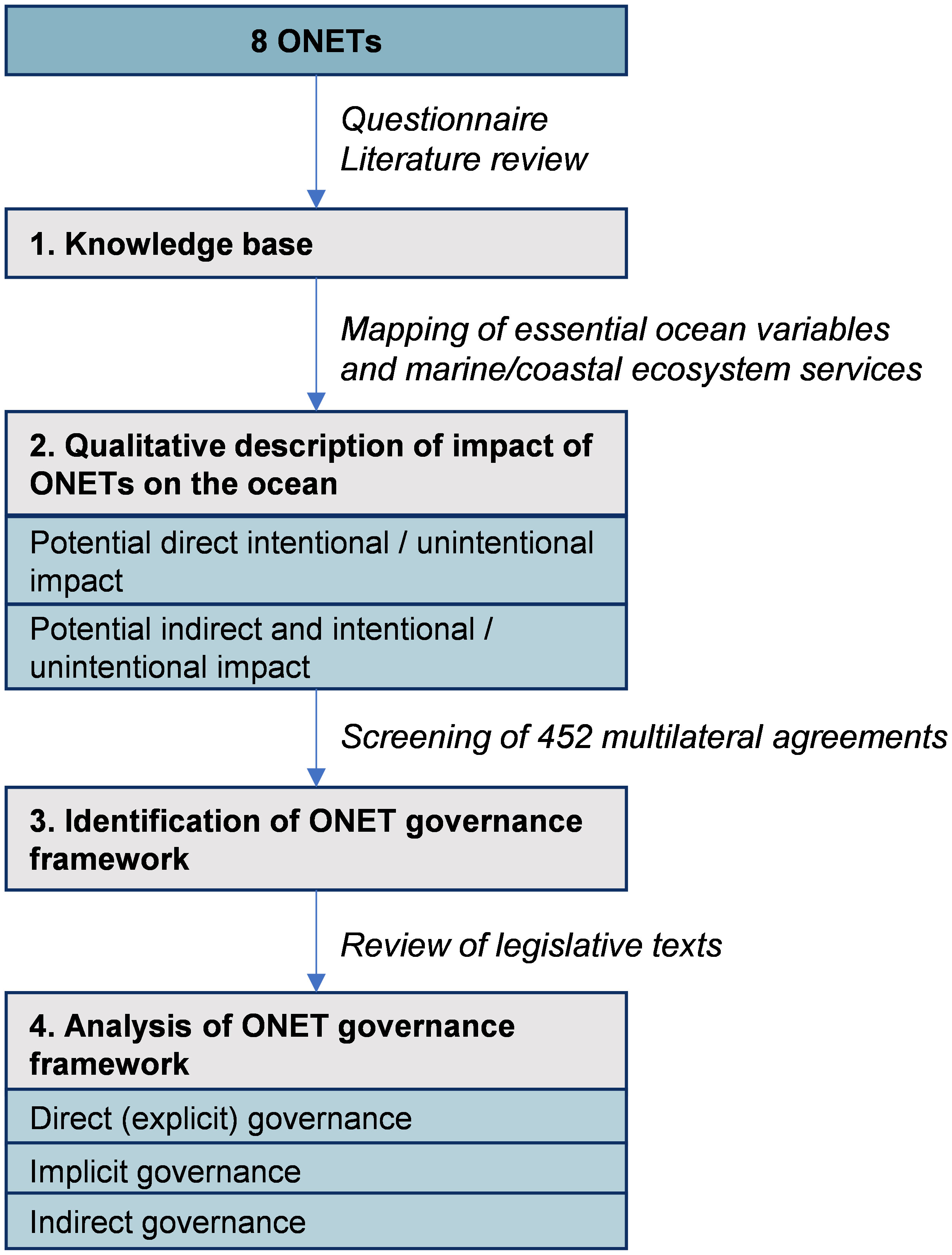2023-08-029 ドイツ・サステナビリティ研究所(IASS)
◆研究者は、海洋環境と生態系への影響を概説し、これらの技術の導入が既存の国際合意や規制とどのように交わるかを分析。また、技術の導入に伴う意図しない影響にも注目し、これらを管理するための予測指向のアプローチが必要であると述べています。
◆研究は、持続可能な開発と世界全体での利益を最大化し、負の排出技術を適切に規制するために、広い視点が必要であると指摘しています。
<関連情報>
- https://www.rifs-potsdam.de/en/news/ocean-solution-climate-change-regulation-negative-emissions-technologies-presents-many
- https://www.frontiersin.org/articles/10.3389/fmars.2023.995130/full
海洋ベースのネガティブエミッション技術:ガバナンス・フレームワークのレビュー
Ocean-based negative emissions technologies: a governance framework review
Lina Röschel,Barbara Neumann
Frontiers Published:16 August 2023
DOI:https://doi.org/10.3389/fmars.2023.995130

The model pathways of the Intergovernmental Panel for Climate Change (IPCC) for the timely achievement of global climate targets, especially the target of limiting global warming to 1.5°C compared to pre-industrial levels, suggest the need for safeguarding and enhancing the global carbon sink. Experts argue that the deployment of so-called negative emissions technologies for large-scale carbon dioxide removal holds potential for keeping the temperature in line with limits set by the Paris Agreement. Ocean-based negative emissions technologies (ONETs) intend to enhance carbon sequestration and storage in the ocean, e.g., by changing the ocean’s physical or biogeochemical properties. But in addition to these intended effects, ONETs may also cause unintentional impacts on the ocean’s condition and on related coastal and marine ecosystem services that are relevant for the attainment of a range of global policy goals. This article links potential direct and indirect, intentional and unintentional impacts of eight ONETs on the marine environment to the regulations and policy goals of international environmental agreements of the current global ocean governance regime. The results thereof outline a direct, implicit and indirect governance framework of ONETs. Hereby, a broader perspective of the concept of (global) ocean governance is adopted to outline a wider network that goes beyond the explicit regulation of ONETs within the realm of ocean governance. This first-order assessment derives gaps and challenges in the existing governance framework, as well as needs and opportunities for comprehensive governance of the technologies. It is determined that while the inclusion of ONETs in the global climate strategy may be deemed necessary for reaching net zero emission targets in the future, a range of potential trade-offs with other policy goals may need to be considered or dealt with when deploying ONETS for climate mitigation. Further, foresight-oriented and adaptive governance mechanisms appear imperative to bridge gaps resulting from extensive uncertainties and unknowns linked to ONET deployment in a changing ocean and. The identified ONET governance framework reiterates current challenges in ocean governance, for instance related to fragmentation, but also represents an opportunity for a synergistic and integrated approach to future governance.



